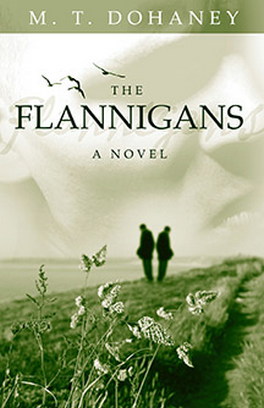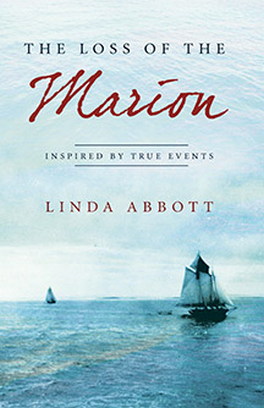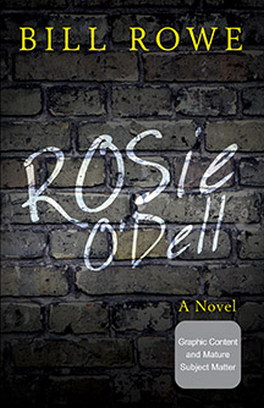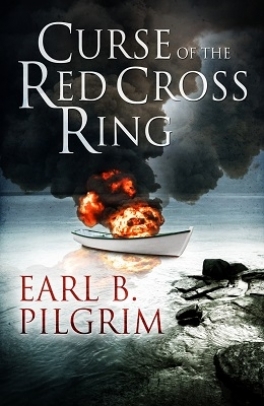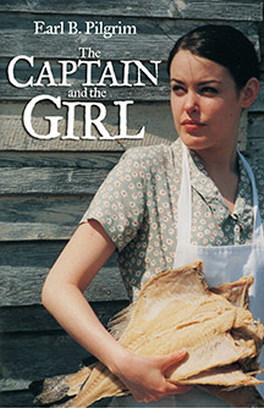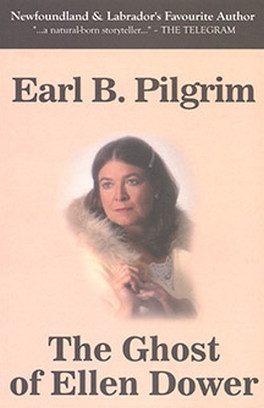The Flannigans were a tightly knit family. They were particularly united in their stand against Newfoundland’s possible entry into Confederation. When a member of the family announces that he is not only working for Confederation but is working directly with Joseph R. Smallwood, it sets in motion a series of events that ends in heartbreak and the dissolution of the family. Set in outport Newfoundland during a pivotal point in the province’s history, The Flannigans is a beautiful yet heart-wrenching tale about a family struggling to come to terms with tragedy. Long listed for the 2008 ReLit Awards
The Flannigans
by M. T. Dohaney
As Anthony has predicted, within minutes the hall begins to fill up. Just as people had gathered in clutches out in the parking lot, they now enter the meeting room in much the same way—in twos and threes and fours. Julia stations herself at the door where she can be on hand to offer each person a choice of flag or pendant or poster, each item carrying in bold black letters the injunction: “Vote Responsible Government.”
Ernest waits until the parking area is almost empty before making a striding entrance into the hall. He has dressed carefully so as to resemble a working class man all decked out in unaccustomed Sunday best—tie loosened from its knot, shirt collar gaping open, suit coat slung carelessly over his shoulder. As he walks up the aisle, he slaps this one on the back, shakes that one’s hand and raises his clenched fist in a victory sign to another.
Clutching a flag, Anthony hurries to join Ernest at the podium. He stands slightly off to one side and immediately attempts to quiet the crowd. “Ladies and gentlemen,” he hollers, as he flattens the air downward with the flag, “Quiet please. Quiet! Quiet! Ernest is here now and like always we’ll begin by singing the first and last verses of the ‘Ode to Newfoundland.’”
The crowd quiets and rises. The singing of the “Ode,” as usual, is loud and boisterous: especially so this evening, it being a Saturday and tongues have been loosened by a stop at a tavern. Anthony only lip-synchs. Even so, the movements of his lips either lag behind the audience or race ahead. When they race ahead, there is always a lapse of a few seconds while he stands looking sheepish, his lips moving to a rhythm of his own making while he waits for the crowd to catch up.
When sunrays crown thy pine-clad hills,
And Summer spreads her hand,
When silvern voices tune thy rills,
We love thee smiling land.
We love thee, we love thee,
We love thee smiling land.
As the last stanza begins, Ernest steps forward and, with palms of both hands extended upward, pumps the air, calling for volume. With his prodding, the “Ode” ends loudly and to his liking, his voice the loudest of all.
God guard thee, God guard thee,
God guard thee Newfoundland.
Anthony eases himself back against the wall, away from the podium. Ernest rolls down his shirt sleeves, buttons his collar, pulls his tie up a notch and swipes his forehead with a fresh linen handkerchief his wife, Hilda, had put in his pocket just seconds before he left the house. After a couple of swipes, he places the handkerchief back in his pocket and addresses the audience.
“Some bloody hot evening, folks,” he says, his dialect a strong mixture of east coast Newfoundland and County Sligo. “Shouldn’t complain, I s’pose. ’Tis a rare gift to have such good weather in June.” He speaks loudly, throwing his voice to the back of the room. “But I’m glad so many of ye turned out in spite of the heat.”
As if he has wasted precious time on useless chit-chat, his voice immediately takes on the tone of a preacher who is convinced that end times are near. “I’m certain that most of ye here this evening are staunch supporters of Responsible Government—the only form of government worthy of Newfoundland.”
Thunderous applause follows.
Ernest scans the room. “But just in case there may be a few who have rail prints on their asses from sitting on the fence, not having the good judgment to know which direction to jump, I says to them, time is running out. C’mon over and join the winning team. To the rest of ye, I says we got to step up our drive fer Responsible Government. We got to keep in mind how small a margin we had in the first referendum and how close we are to having that second referendum come upon us. Our job now is to bring the Commission votes over to our side. We got to make them see that if they don’t want to be part of a foreign nation, they’d better get on board now. No good of them coming to us bellyaching on July 23 after the country has been sold out lock, stock, and barrel to that heathen country, Canada.”
He lets the word “Canada” slide over his lips with such distaste that he might just as well be spitting out grime that has seeped in through his car windows from the gravel roads in Cape Verde.
At this juncture, and as per Ernest’s earlier instructions, Anthony steps forward and rapidly waves his flag several times. The crowd stomp their feet and clap their hands and shout out “Hear! Hear!”
Ernest, who has a nose for sniffing out those who are not of his political persuasion, suspects there are several Commission voters in the crowd, even if they are present only out of curiosity. He addresses them directly. “Ye Commission fellas lost yer vote in the first referendum. No need of ye losing it again in the second one, which ye will do if ye gives it to Confederation.”
He shakes his head in exaggerated puzzlement. “What I can’t understand is why people would have to be prodded to come over to our side. Anyone with the brain of a Plymouth Rock hen would be able to see that once ye joins Canada there is no un-joining. If ye votes for Responsible Government, in four years ye can get rid of it—that’s if ye wants to—but ye won’t want to. I can assure ye of that. Confederation is final.”
He reaches behind the podium to the desk and picks up Sister Francis’s chalkboard pointer. Brandishing it like a sword, he turns from the audience and walks to the back wall on which a Royal Bank of Canada calendar is hanging. He taps the pointer on a date circled in red.
“This is here and now.” He lets the pointer loll for a few seconds on June l2. He then moves it to July 22—which is also circled in red—and states in a solemn voice, “This is the date of the second referendum. It is coming upon us faster than a speeding train. Faster than Superman jumping across the Gulf.”
He goes back to the desk and drops the pointer on it with a clatter. The audience is as hushed as if no one has taken a breath since Ernest pointed out how fast the second referendum was approaching.
“There are no ifs, ands, or buts, fellas,” he continues, absently dusting the chalk from the wooden pointer off his hands. “We’ve got to get more than a squeaking majority in this referendum. We’ve got to get such a majority that we’ll leave the Confederates shaking in their cheap Canadian boots. Boots they ordered from a catalogue up in Toronto or Montreal and paid more duty on them than they were worth. More the fools. Could have gotten a less pricey pair and a much better boot at Ayre & Sons or Bowring’s. But like little children they got mesmerized by the pictures in Mr. Eaton’s catalogue.” He extends his arms saviourlike. “I’m telling ye right now, b’ys, if we don’t want Newfoundland sacrificed fer the baby bonus, sold to a country not good enough to have its own flag, we’ve got to act fast. I wants everyone to understand that time is running out. And I wants everyone to bear in mind that Newfoundland was never meant to be sold out to a bunch of heathens.”
The Flannigans is an exceptionally good novel, and the heart-wrenching story appears to linger in your heart, long after the book is finished.
-- The Daily Gleaner --
For all that has been said and written, no one has ever come close to capturing the emotions of Confederation quite like M. T. (Jean) Dohaney has.-- The Aurora --
M. T. Dohaney offers up another rich and well-written fiction story in The Flannigans. . . . Like Dohaney\\\'s other works, this novel doesn\\\'t disappoint with its well-developed characters, authentic scene setting, Newfoundland dialect, and good writing.-- The Daily Gleaner --
Dohaney draws the characters and their emotions so finely that generations who weren\\\'t alive to witness (or are too young to remember) this turning point in our history can begin to imagine the intensity of that time.-- Downhome --
This book keeps a good dramatic pace.-- The Telegram --
The way in which Dohaney intertwines personal relationships with political conflicts, while nothing new, is compelling.-- Canadian Literature --
An intriguing family drama . . .-- Newfoundland and Labrador Studies --
